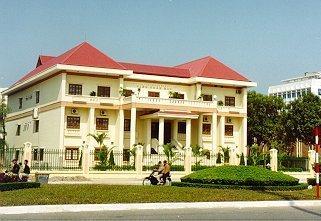Hyperplane Arrangements: Recent advances and open problems
The theory of hyperplane arrangements is a very active area of research. In the recent years there has been a huge progress in the understanding of this subject. Some specific main problems are
(1) Are the monodromy operators or at least the Betti numbers bm(F) of the Milnor fiber F of a hyperplane arrangement A are combinatorially determined?
(2) Are the jump loci of the cohomology of the complement of A with coefficients in rank one local systems determined by the intersection lattice L(A)?
(3) Can there be torsion in the first homology group?
(4) Terao’s Conjecture: Is the freeness of an arrangement combinatorially determined?
(5) Matroids and Kazhdan–Lusztig polynomials: Are the coefficients of the Kazhdan–Lusztig polynomials associated to non-realizable matroids always non-negative?
The aim of this CIMPA school is to introduce this fascinating area of mathematics to researchers from Viet Nam and neighboring countries in Asia. The above problems are among various aspects of Hyperplane Arrangements will be introduced at this CIMPA school through 6 carefully selected courses. The school is primarily oriented towards PhD students and young researchers working in the area of Algebra, Geometry and Topology.
The school is followed by a 2 days workshop, where most recent progresses in the field will be presented by experts from all over the world. The school’s participants are also encouraged to participate in the workshop. They can take this opportunity to exchange ideas with experts, as well as to approach some concrete and open problems which can be the subject of their research in the future.


